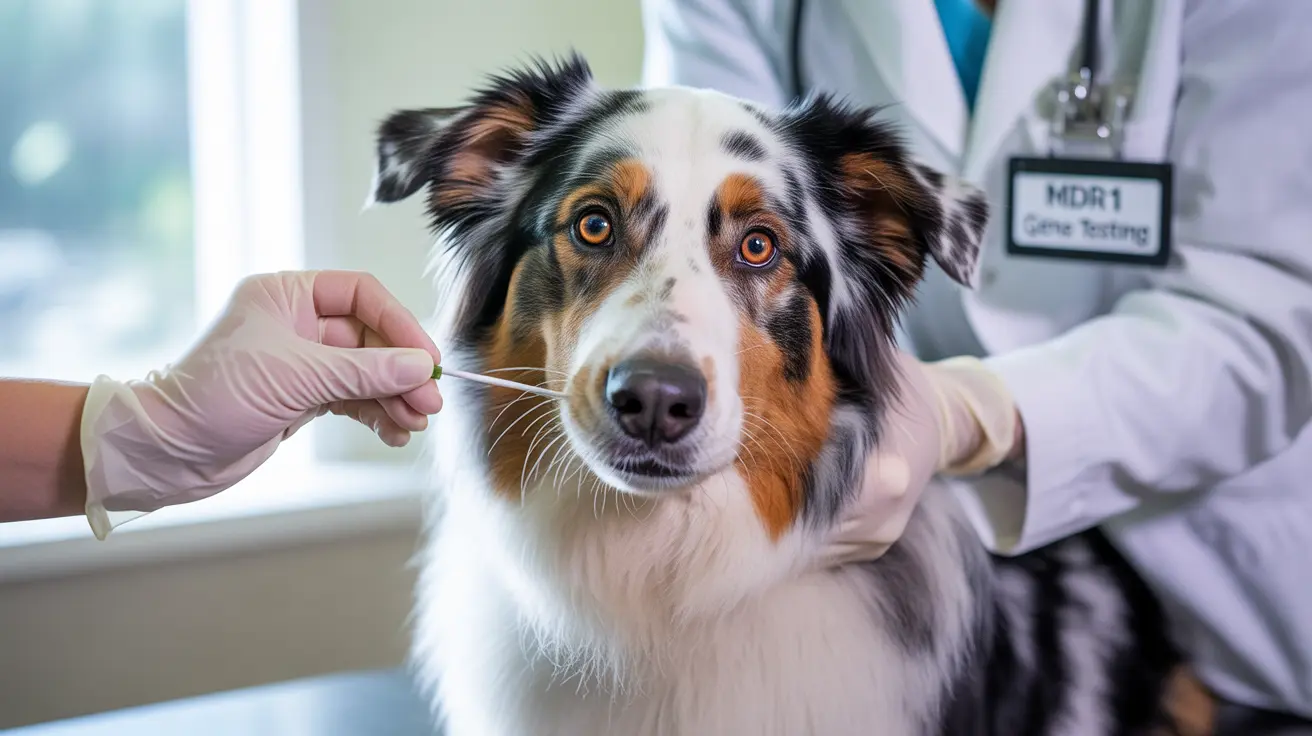If you own a herding breed dog or are considering getting one, understanding the MDR1 gene could be crucial for your pet's health and safety. This genetic factor plays a vital role in how certain dogs process medications, and knowing about it could literally save your dog's life.
The MDR1 gene, scientifically known as ABCB1, is responsible for producing a protein that acts as a protective barrier in your dog's body. When this gene is mutated, it can lead to severe, potentially life-threatening reactions to common medications. Let's dive deep into what every dog owner needs to know about this important genetic trait.
What is the MDR1 Gene and How Does It Work?
The MDR1 gene produces a crucial protein called P-glycoprotein, which acts as a cellular bouncer, actively removing potentially harmful substances from sensitive areas of your dog's body. This protein is especially important in protecting the brain, liver, and kidneys from toxic accumulation of certain drugs.
In dogs with normal MDR1 genes, this protective system works efficiently, keeping dangerous substances out of sensitive tissues. However, when the gene is mutated, this defense mechanism fails, allowing medications to build up to potentially toxic levels.
Common Breeds Affected by MDR1 Mutation
The MDR1 mutation is particularly prevalent in herding breeds, with some showing staggeringly high rates of occurrence:
- Rough and Smooth Collies (up to 70% affected)
- Australian Shepherds (including Miniatures)
- Shetland Sheepdogs
- Old English Sheepdogs
- Border Collies
- German Shepherds
Critical Medications to Watch
Dogs with the MDR1 mutation can have severe reactions to several common medications:
- Ivermectin (common in heartworm preventatives)
- Moxidectin
- Loperamide (anti-diarrheal medication)
- Certain chemotherapy drugs
- Some antibiotics and anti-fungal medications
Testing and Diagnosis
Fortunately, testing for the MDR1 mutation is straightforward and accessible. A simple cheek swab can determine whether your dog carries one or two copies of the mutated gene. This test is particularly recommended for:
- Dogs of herding breed ancestry
- Mixed-breed dogs with unknown heritage
- Any dog before starting certain medications
Managing Dogs with MDR1 Mutation
If your dog tests positive for the MDR1 mutation, several management strategies are crucial:
- Always inform new veterinarians about your dog's MDR1 status
- Keep a list of medications to avoid
- Consider wearing a medical alert tag or collar
- Work with your vet to find safe alternative medications
- Maintain detailed medical records
Frequently Asked Questions
What is the MDR1 gene mutation in dogs and how does it affect drug sensitivity?
The MDR1 gene mutation affects a protein that normally helps remove toxins from the body, especially the brain. Dogs with this mutation can't process certain medications properly, leading to dangerous drug accumulation and potential toxicity.
Which dog breeds are most commonly affected by the MDR1 gene mutation?
Herding breeds are most commonly affected, particularly Collies, Australian Shepherds, Shetland Sheepdogs, and Old English Sheepdogs. Some sighthounds and mixed breeds may also carry the mutation.
How can I find out if my dog has the MDR1 gene mutation?
A simple DNA test using a cheek swab can determine if your dog carries the MDR1 mutation. These tests are available through veterinary diagnostic laboratories and commercial genetic testing services.
What medications should be avoided or adjusted for dogs with the MDR1 mutation?
Several medications including ivermectin, certain anti-diarrheal medications, some antibiotics, and various chemotherapy drugs should be avoided or carefully dose-adjusted for MDR1-mutant dogs.
How does knowing my dog's MDR1 status help veterinarians manage anesthesia and treatments safely?
Knowledge of MDR1 status allows veterinarians to choose appropriate medications and dosages, adjust anesthesia protocols, and avoid potentially dangerous drugs, ensuring safer medical treatment for affected dogs.
Conclusion
Understanding your dog's MDR1 status is a crucial aspect of responsible pet ownership, especially if you have a herding breed. With proper testing and management, dogs with the MDR1 mutation can live healthy, normal lives. Always work closely with your veterinarian and maintain open communication about your dog's genetic status to ensure safe and effective medical care.






